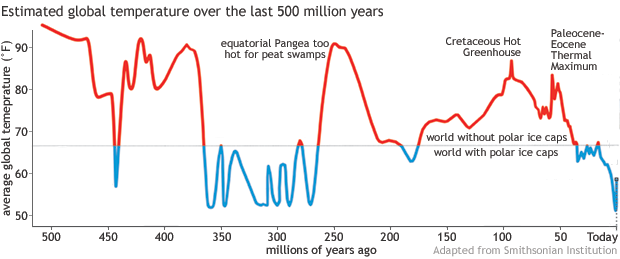Simply put: Klages et al. (2020)

Paleoclimate science -- or the science of the climates of the past -- sometimes tells us truly confounding things about how the world was before we arrived on the scene. Here I describe (for the layman) the findings of a study by a group of paleoclimatologists who studied the climate of the Cretaceous Period. This post is based on the paper " Temperate rainforests near the South Pole during peak Cretaceous warmth " by Klages et al. (2020), published in Nature. As the title gives away, the mid-Cretaceous was so warm that there were rainforests near the South Pole! Now if I have your attention, let's explore. Some context The Earth has seen several warm periods in its past. Take a look at how the global temperature is thought to have varied over the last 500 million years. (50 ℉ = 10 ℃. 90 ℉ = 32.2 ℃ . No, I did not choose the scale for the y-axis.) Note where the Cretaceous Hot Greenhouse is marked in the plot below. Klages et al. (2020) focused on the time period betwee...